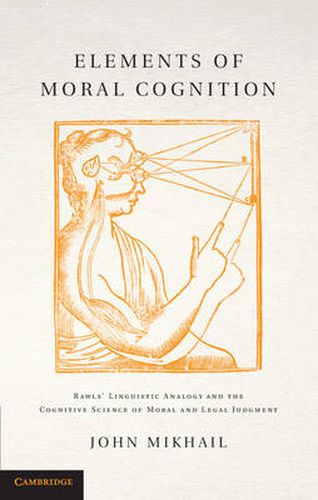Readings Newsletter
Become a Readings Member to make your shopping experience even easier.
Sign in or sign up for free!
You’re not far away from qualifying for FREE standard shipping within Australia
You’ve qualified for FREE standard shipping within Australia
The cart is loading…






Is the science of moral cognition usefully modelled on aspects of Universal Grammar? Are human beings born with an innate ‘moral grammar’ that causes them to analyse human action in terms of its moral structure, with just as little awareness as they analyse human speech in terms of its grammatical structure? Questions like these have been at the forefront of moral psychology ever since John Mikhail revived them in his influential work on the linguistic analogy and its implications for jurisprudence and moral theory. In this seminal book, Mikhail offers a careful and sustained analysis of the moral grammar hypothesis, showing how some of John Rawls’ original ideas about the linguistic analogy, together with famous thought experiments like the trolley problem, can be used to improve our understanding of moral and legal judgement.
$9.00 standard shipping within Australia
FREE standard shipping within Australia for orders over $100.00
Express & International shipping calculated at checkout
Is the science of moral cognition usefully modelled on aspects of Universal Grammar? Are human beings born with an innate ‘moral grammar’ that causes them to analyse human action in terms of its moral structure, with just as little awareness as they analyse human speech in terms of its grammatical structure? Questions like these have been at the forefront of moral psychology ever since John Mikhail revived them in his influential work on the linguistic analogy and its implications for jurisprudence and moral theory. In this seminal book, Mikhail offers a careful and sustained analysis of the moral grammar hypothesis, showing how some of John Rawls’ original ideas about the linguistic analogy, together with famous thought experiments like the trolley problem, can be used to improve our understanding of moral and legal judgement.